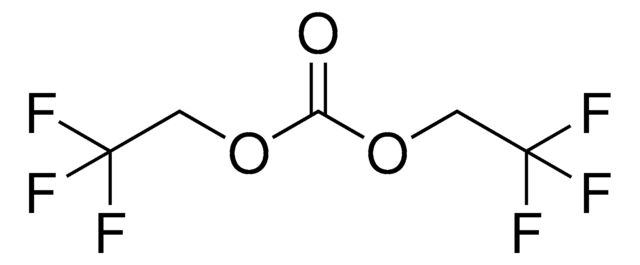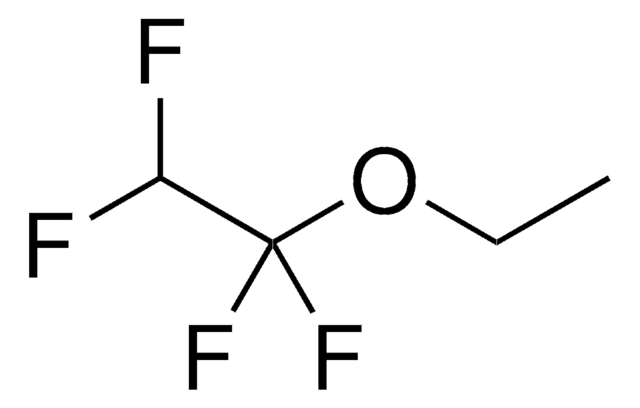934038
Hexafluoroisopropyl methyl ether
≥99%, anhydrous, battery grade
Synonym(s):
1,1,1,3,3,3-Hexafluoro-2-methoxypropane, HFME, HFPM, Isoindoklon
About This Item
Recommended Products
grade
battery grade
Quality Level
description
Application: Battery manufacturing
Assay
≥99%
form
liquid
greener alternative product characteristics
Design for Energy Efficiency
Learn more about the Principles of Green Chemistry.
sustainability
Greener Alternative Product
impurities
≤250 ppm acid (HF)
≤500 ppm H2O
bp
50 °C
density
1.39 g/mL
application(s)
battery manufacturing
greener alternative category
General description
Application
Storage Class Code
10 - Combustible liquids
WGK
WGK 3
Certificates of Analysis (COA)
Search for Certificates of Analysis (COA) by entering the products Lot/Batch Number. Lot and Batch Numbers can be found on a product’s label following the words ‘Lot’ or ‘Batch’.
Already Own This Product?
Find documentation for the products that you have recently purchased in the Document Library.
Our team of scientists has experience in all areas of research including Life Science, Material Science, Chemical Synthesis, Chromatography, Analytical and many others.
Contact Technical Service






![1,1,1-Trifluoro-2-[(2-methoxyethoxy)methoxy]ethane](/deepweb/assets/sigmaaldrich/product/structures/456/115/61ddafaa-0eb7-4c54-8b2c-62f0f71fe724/640/61ddafaa-0eb7-4c54-8b2c-62f0f71fe724.png)

